Have any question?
Text or Call (954) 573-1300
Text or Call (954) 573-1300
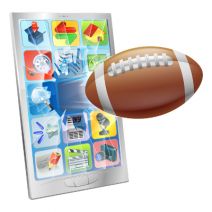 There are those in the technology world that argue that professional sports are of marginal importance. Grown men and women, getting paid vast sums of money by fat-cats that make the average successful business owner look like a pauper, to play games that millions of children play everyday. However, according to a poll taken by CNN/USA Today/Gallup, nearly two-thirds of American respondents admitted to being sports fans. In other nations around the world, the sports that fans follow may differ, but percentages are similar to, or exceed those in the U.S.
There are those in the technology world that argue that professional sports are of marginal importance. Grown men and women, getting paid vast sums of money by fat-cats that make the average successful business owner look like a pauper, to play games that millions of children play everyday. However, according to a poll taken by CNN/USA Today/Gallup, nearly two-thirds of American respondents admitted to being sports fans. In other nations around the world, the sports that fans follow may differ, but percentages are similar to, or exceed those in the U.S.
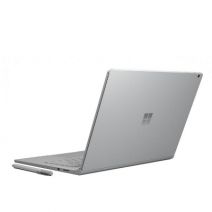 One of the most storied competitions in the technology industry comes from Apple vs Microsoft. For the past 35 years, they went back and forth by offering consumers their own twist on similar technologies. The latest chapter in this story comes from Microsoft’s new Surface Book, which aims to compete directly with Apple’s MacBook Pro.
One of the most storied competitions in the technology industry comes from Apple vs Microsoft. For the past 35 years, they went back and forth by offering consumers their own twist on similar technologies. The latest chapter in this story comes from Microsoft’s new Surface Book, which aims to compete directly with Apple’s MacBook Pro.
 We live in an exciting time of computing where more is happening wirelessly than ever before. Although, we’re still a long way off from having networking wires and cables become entirely obsolete, which means that it’s in your best interest to know how to deal with your cables as efficiently as possible.
We live in an exciting time of computing where more is happening wirelessly than ever before. Although, we’re still a long way off from having networking wires and cables become entirely obsolete, which means that it’s in your best interest to know how to deal with your cables as efficiently as possible.
 If you’ve not yet heard of AR technology or experienced it, don’t worry, you will. Wikipedia defines AR technology as:
If you’ve not yet heard of AR technology or experienced it, don’t worry, you will. Wikipedia defines AR technology as:
A live direct or indirect view of a physical, real-world environment whose elements are augmented (or supplemented) by computer-generated sensory input such as sound, video, graphics or GPS data.
The Internet of Things can increase efficiency, but at what cost? The Internet of Things isn’t a phenomenon that’s exclusive to the business sector; rather, all users will probably take advantage of at least one Internet of Things device at some point or another. Considering the fact that Internet-connected cars, houses, thermostats, smart watches, fitness trackers, baby monitors, and other appliances are increasing in popularity, it’s not beyond the realm of possibility that hackers can take advantage of these devices in order to mess with the lives of innocent people.
 Basically, when your accounts are hacked, criminals will often attempt to sell this information on the Dark Web; a place where only those on the anonymity network, Tor, can access. Most information that’s stolen consists of personal identifiable information and financial data, but hackers will often be content with making off with anything they possibly can. The most common industries targeted by these hackers are healthcare, government, retail, and education, but it should be mentioned that all businesses are susceptible to data theft of any kind.
Basically, when your accounts are hacked, criminals will often attempt to sell this information on the Dark Web; a place where only those on the anonymity network, Tor, can access. Most information that’s stolen consists of personal identifiable information and financial data, but hackers will often be content with making off with anything they possibly can. The most common industries targeted by these hackers are healthcare, government, retail, and education, but it should be mentioned that all businesses are susceptible to data theft of any kind.
 It seems like just yesterday that the world adopted 4G as the accepted model of wireless technology communication, but it’s still important to look toward the future and push for greater heights. Wireless technology has permeated society to the point where it’s steeped with smartphones and other mobile devices. So, what’s next in the wireless game?
It seems like just yesterday that the world adopted 4G as the accepted model of wireless technology communication, but it’s still important to look toward the future and push for greater heights. Wireless technology has permeated society to the point where it’s steeped with smartphones and other mobile devices. So, what’s next in the wireless game?
 As expected, mobile technology is a consistent part of daily business operations for many companies around the world. Employees love taking advantage of the mobility these devices offer, making their home office just as useful as their in-house workstation. However, a mobile device management solution needs to be strictly adhered to in order to optimize security and guarantee that a stray smartphone doesn’t expose your data to unexpected eyes.
As expected, mobile technology is a consistent part of daily business operations for many companies around the world. Employees love taking advantage of the mobility these devices offer, making their home office just as useful as their in-house workstation. However, a mobile device management solution needs to be strictly adhered to in order to optimize security and guarantee that a stray smartphone doesn’t expose your data to unexpected eyes.
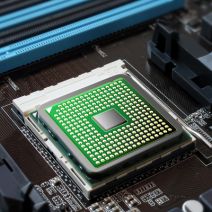 Early in July, IBM announced that they have developed an ultra-dense computer chip that has roughly four times the computing capacity of today’s most powerful chips. These prototype chips, and ones they will develop to fuel computing into the next decade and beyond, are the result of the evolution of 21st century informatics.
Early in July, IBM announced that they have developed an ultra-dense computer chip that has roughly four times the computing capacity of today’s most powerful chips. These prototype chips, and ones they will develop to fuel computing into the next decade and beyond, are the result of the evolution of 21st century informatics.
 The incorporation of mobile devices into day-to-day life has changed the culture significantly. In fact, when Apple introduced “iPhone” less than a decade ago, Steve Jobs famously said, “It’s like your life in your pocket.” Now, over eight years on from the launch of the first iPhone, it’s hard to remember what life was like before you had a full-function information system in the palm of your hand. We’ve come to rely heavily on these devices, driving mobile profits up and creating a market that didn’t have any substance only a short time ago.
The incorporation of mobile devices into day-to-day life has changed the culture significantly. In fact, when Apple introduced “iPhone” less than a decade ago, Steve Jobs famously said, “It’s like your life in your pocket.” Now, over eight years on from the launch of the first iPhone, it’s hard to remember what life was like before you had a full-function information system in the palm of your hand. We’ve come to rely heavily on these devices, driving mobile profits up and creating a market that didn’t have any substance only a short time ago.
 Email has revolutionized the way we communicate, but in some cases it can be a dangerous distraction to productivity. This is especially true if your company is trying to maintain its own Exchange mail server. Does having email on the brain give you a headache? If so, you might consider looking into our hosted email Exchange solution.
Email has revolutionized the way we communicate, but in some cases it can be a dangerous distraction to productivity. This is especially true if your company is trying to maintain its own Exchange mail server. Does having email on the brain give you a headache? If so, you might consider looking into our hosted email Exchange solution.
Nature can be pretty impressive. It can interrupt the day-to-day operations of businesses, cause major damage, and cost your business in expensive downtime. Having a good business continuity plan (and ensuring you have it set in place) can make or break your company when mother nature comes knocking at your door.
 The world’s largest terrestrial vehicle is the German-made bucket-wheel excavator known as “Bagger 293.” Used for open-pit mining, Bagger 293 hulks over the landscape at a length of 722 feet, and a height of 310 feet (twice the size of the Statue of Liberty). As a bonus, this beast-of-a-machine is made more ferocious thanks to remote technology.
The world’s largest terrestrial vehicle is the German-made bucket-wheel excavator known as “Bagger 293.” Used for open-pit mining, Bagger 293 hulks over the landscape at a length of 722 feet, and a height of 310 feet (twice the size of the Statue of Liberty). As a bonus, this beast-of-a-machine is made more ferocious thanks to remote technology.
 In addition to Microsoft’s upcoming new operating system, Windows 10, the software company has released that there is a new web browser in production. This new browser, code-named “Spartan,” is expected to have similar functionality to Mozilla’s Firefox and Google Chrome, and will be released alongside Windows 10.
In addition to Microsoft’s upcoming new operating system, Windows 10, the software company has released that there is a new web browser in production. This new browser, code-named “Spartan,” is expected to have similar functionality to Mozilla’s Firefox and Google Chrome, and will be released alongside Windows 10.
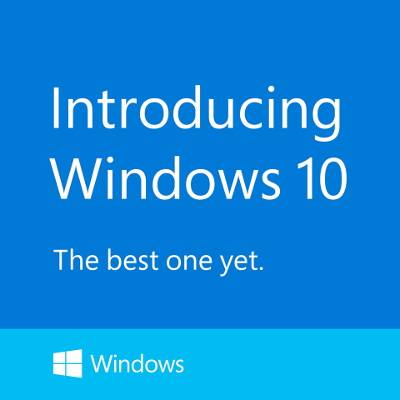 Windows 10, the next big Microsoft’s Windows operating system, has a lot to live up to, and enterprises have had the chance to experiment with the technical preview for the past month. While the operating system will still be in development for the better part of next year, some professionals are forming opinions of what to expect from it. From the technical preview, what do businesses think of Windows 10 so far?
Windows 10, the next big Microsoft’s Windows operating system, has a lot to live up to, and enterprises have had the chance to experiment with the technical preview for the past month. While the operating system will still be in development for the better part of next year, some professionals are forming opinions of what to expect from it. From the technical preview, what do businesses think of Windows 10 so far?
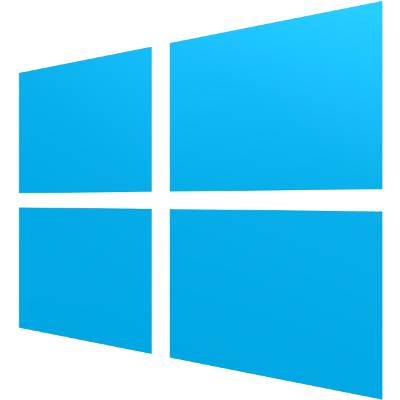 The news is out; what was previously thought to be Windows 9, codenamed “Threshold,” has been revealed to be Windows 10. While leaks have already shown us quite a bit of what the latest installment of Windows can do, the official reveal goes into more detail about the nature of Windows 10 for enterprises and even common users. First, let’s go over what we already know about the enigmatic new operating system, then we’ll get into the juicy new details.
The news is out; what was previously thought to be Windows 9, codenamed “Threshold,” has been revealed to be Windows 10. While leaks have already shown us quite a bit of what the latest installment of Windows can do, the official reveal goes into more detail about the nature of Windows 10 for enterprises and even common users. First, let’s go over what we already know about the enigmatic new operating system, then we’ll get into the juicy new details.
Learn more about what L7 Solutions can do for your business.
L7 Solutions
7890 Peters Road Building G102,
Plantation, Florida 33324